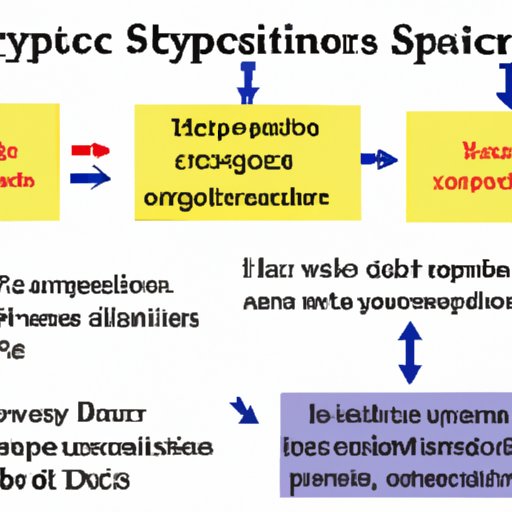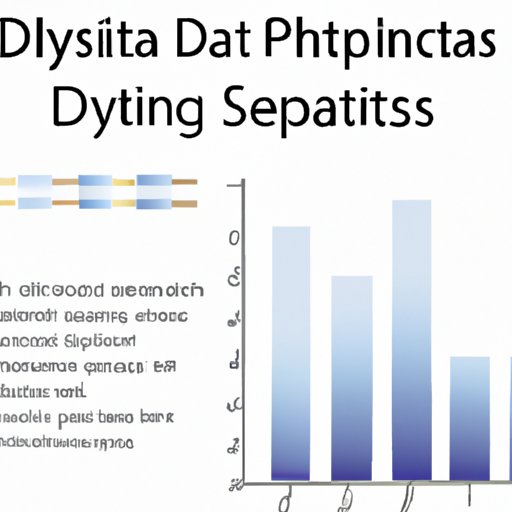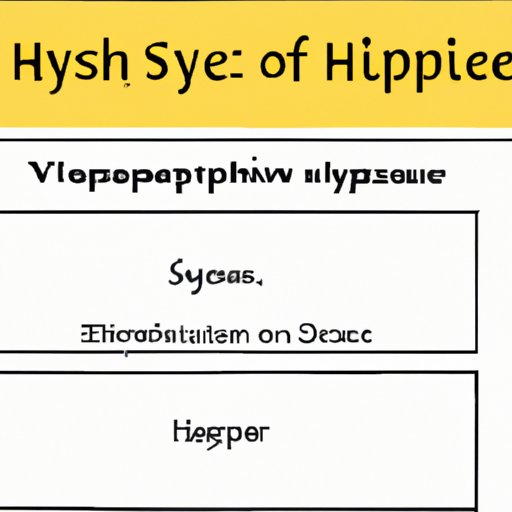Introduction
A scientific hypothesis is a statement that attempts to explain a certain phenomenon or natural occurrence. It is used as the basis for conducting experiments and collecting data in order to prove or disprove its validity. Writing an effective hypothesis for a science fair project requires breaking down the process into several steps. This article outlines the key components of a hypothesis, provides tips for creating a successful hypothesis and explains how to use data to support a hypothesis.
Step-by-Step Guide to Writing an Effective Hypothesis
When writing a hypothesis for a science fair project, there are several steps to follow. The first step is to identify the problem. A clear problem statement will help guide the rest of the process. Once the problem has been identified, formulate a question that can be answered through experimentation. After the question has been formulated, it is time to brainstorm possible explanations for the phenomenon. These explanations will form the basis for the hypothesis. Finally, the hypothesis should be stated in a clear and concise manner.

Components of a Scientific Hypothesis
In order for a hypothesis to be considered valid, it must contain certain components. First, the hypothesis must include both independent and dependent variables. An independent variable is the factor that is being manipulated in the experiment, while a dependent variable is the factor that is being measured. Second, the hypothesis must include operational definitions for each of the variables. Operational definitions are specific descriptions of how each variable is defined and how it will be measured in the experiment.
Creating a Testable Hypothesis
Once the components of the hypothesis have been identified, it is important to make sure the hypothesis is testable. To do this, the hypothesis must be developed further so that it can be tested through experimentation. This involves making predictions about what will happen if the hypothesis is correct. Additionally, it is important to consider any potential confounding variables that may affect the results of the experiment. By taking these factors into account, the hypothesis can be made more testable and accurate.
Benefits of Writing a Clear Hypothesis
Writing a clear and specific hypothesis has a number of benefits. First, it allows for greater clarity when conducting the experiment. This enables the experimenter to focus on the relevant variables and collect the most accurate data possible. Additionally, a clear hypothesis makes it easier to analyze and interpret the data collected during the experiment. This can help to ensure that the results are reliable and accurate.

Using Data to Support Your Hypothesis
Once the experiment has been conducted, it is important to analyze the data collected to determine whether it supports the hypothesis. To do this, it is necessary to collect data that is relevant to the hypothesis. This data should be collected in a systematic manner and recorded accurately. Once the data has been collected, it can be analyzed using various statistical methods to determine whether the hypothesis is supported by the evidence.
Conclusion
Writing an effective hypothesis for a science fair project is a crucial step in the experiment process. It is important to identify the problem, formulate a question, brainstorm possible explanations, and state the hypothesis clearly. Additionally, the hypothesis must include both independent and dependent variables as well as operational definitions. It is also important to make sure the hypothesis is testable and to consider any potential confounding variables. Finally, the data collected during the experiment should be analyzed to determine whether it supports the hypothesis. Following these steps will help to ensure the success of any science fair project.
(Note: Is this article not meeting your expectations? Do you have knowledge or insights to share? Unlock new opportunities and expand your reach by joining our authors team. Click Registration to join us and share your expertise with our readers.)
